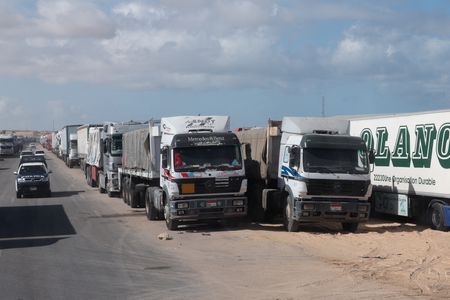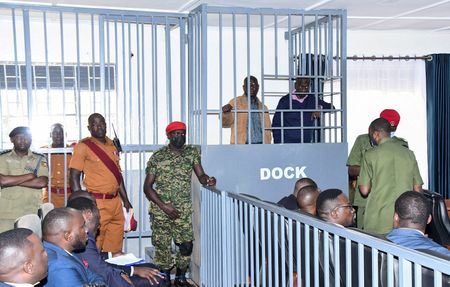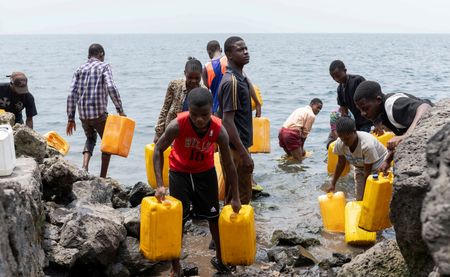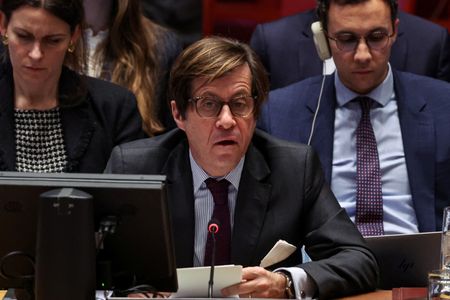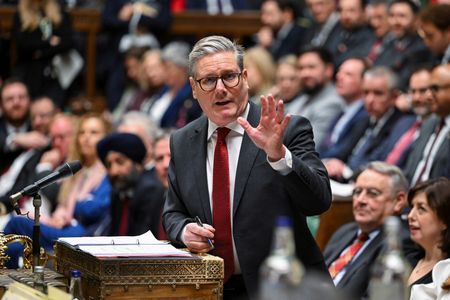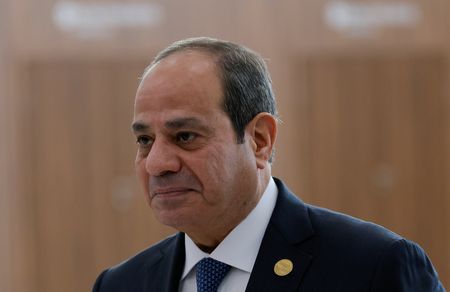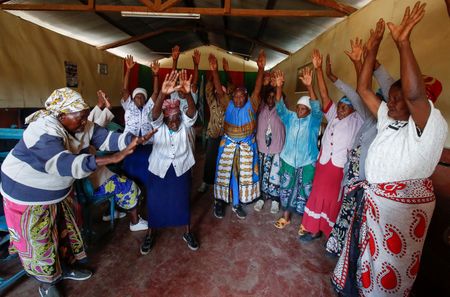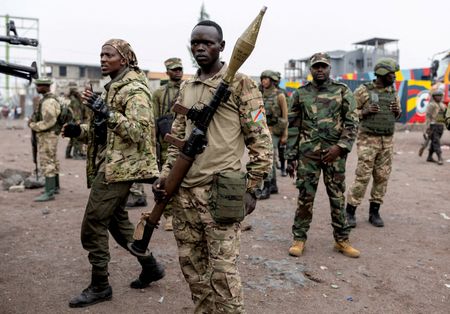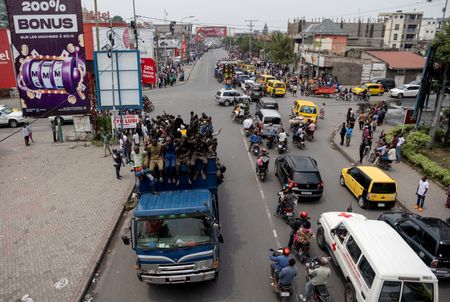(Reuters) – A major offensive by Rwandan-backed M23 rebels in east Democratic Republic of Congo appeared to have stalled on Saturday after the army took back some ground, two civil society sources and a local official said.
The Tutsi-led rebels have seized Goma, the largest city in east Congo and capital of North Kivu province, which is home to lucrative gold, coltan and tin mines.
They then moved on towards Bukavu in South Kivu province, adding to fears of a wider regional conflict, but appeared to be held up on Friday by Congolese troops supported by Burundi’s army.
Local civil society leader Justin Mulindangabo said Congo’s army had taken back the villages of Mukwija, Shanje, Numbi and Nyamasasa and other localities in Kalehe territory, around halfway between Goma and Bukavu.
Another civil society source said there was no fighting in Kalehe on Saturday morning.
A local official said the army had strengthened its position in Kalehe and retaken several villages including Mukwija. The source, who did not wish to be named for security reasons, said fighting was continuing elsewhere.
Congo’s army did not respond to a request for comment on the situation on Saturday. M23 could not be reached.
Burundian troops have been reinforcing Congolese forces in South Kivu and elsewhere at the request of the Kinshasa government.
They are among the forces seeking to block the advance of M23 and the Rwandan army north of Kavumu, a town 35 km (22 miles) north of Bukavu that is home to the city’s airport and hosts a number of Congolese drones and other aircraft.
SOUTH KIVU CALMER AS M23 REBEL ADVANCE STALLS
Civil society leader Mulindangabo, who lives in Kavumu, said the town was calm on Saturday, with residents no longer panicking but resuming daily life.
Well trained and professionally armed, M23 is the latest in a long line of Rwandan-supported, Tutsi-led rebel movements to emerge in Congo’s volatile eastern borderlands in the wake of two successive wars stemming from Rwanda’s 1994 genocide.
The latest escalation of this long-standing conflict has sparked international criticism of Rwanda and a flurry of diplomatic activity, with repeated calls for a ceasefire.
Burundian President Evariste Ndayishimiye warned he would retaliate against any potential Rwandan encroachment into his country, which shares borders with both Rwanda and Congo.
“We won’t accept it, war will be generalised,” Ndayishimiye said during a briefing on Friday.
Rwanda’s government was not immediately available for comment.
Rwanda has long denied supporting M23 and says it is defending itself, accusing Congo’s military of joining forces with ethnic Hutu-led militias bent on slaughtering Tutsis in Congo and threatening Rwanda. Hutus attacked Tutsis in the 1994 genocide, and some later fled to Congo.
Congo denies the allegations and accuses Rwanda of using M23 to pillage valuable minerals on its territory.
(Additional reporting by Clement Manirabarusha in Bujumbura, Philbert Girinema in Kigali; writing by Sofia Christensen; Editing by Kevin Liffey)



